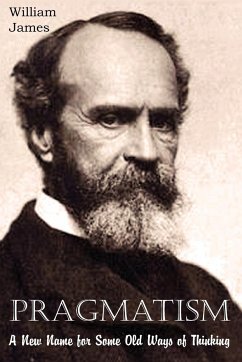"The lectures that follow were delivered at the Lowell Institute in Boston and at Columbia University, in New York. They are printed as delivered, without developments or notes. The pragmatic movement, so-called-I do not like the name, but apparently it is too late to change it- seems to have rather suddenly precipitated itself out of the air. A number of tendencies that have always existed in philosophy have all at once become conscious of themselves collectively, and of their combined mission; and this has occurred in so many countries, and from so many different points of view, that much unconcerted statement has resulted. I have sought to unify the picture as it presents itself to my own eyes, dealing in broad strokes, and avoiding minute controversy. Much futile controversy might have been avoided, I believe, if our critics had been willing to wait until we got our message fairly out." William James was a pioneering American psychologist and philosopher trained as a medical doctor. He wrote influential books on psychology, educational psychology, psychology of religious experience and mysticism, and the philosophy of pragmatism. He gained widespread recognition with his monumental Principles of Psychology, totaling twelve hundred pages in two volumes, which took twelve years to complete.
Hinweis: Dieser Artikel kann nur an eine deutsche Lieferadresse ausgeliefert werden.
Hinweis: Dieser Artikel kann nur an eine deutsche Lieferadresse ausgeliefert werden.








